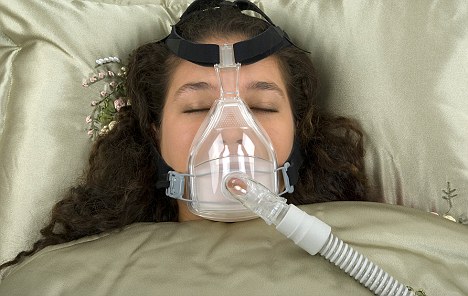Women who suffer sleep apnea twice as likely to have dementia later in life
 Washington, August 10 : A multi-center study led by researchers from the University of California, San Francisco, has indicated that elderly women who suffer from sleep apnea are about twice as likely to develop dementia in the next five years as those without the condition.
Washington, August 10 : A multi-center study led by researchers from the University of California, San Francisco, has indicated that elderly women who suffer from sleep apnea are about twice as likely to develop dementia in the next five years as those without the condition.
The findings showed for the first time what sleep specialists have long suspected but hadn''t proved: sleep apnea, also known as sleep-disordered breathing, can deprive the brain and other organs of the oxygen they need and, may, over time, trigger declines in cognitive ability.
"This is the first study to show that sleep apnea may lead to cognitive impairment," said study leader Kristine Yaffe, MD, professor of psychiatry, neurology and epidemiology at UCSF and chief of geriatric psychiatry at SFVAMC.
"It suggests that there is a biological connection between sleep and cognition and also suggests that treatment of sleep apnea might help prevent or delay the onset of dementia in older adults," added Yaffe.
"While we cannot conclude from these results that SDB causes cognitive impairment, our study suggests that it may at least be a contributing factor," said Yaffe.
In people with sleep apnea, the airways leading from the lungs to the nose and mouth collapse as the individuals sleep, interfering with the ability to inhale. People with sleep apnea usually snore, sometimes loudly, and are wakened many times a night for tiny fragments of time as they gasp for air.
The strength of the new findings comes from the fact that the 298 subjects began the study without dementia or measurable cognitive impairments, allowing researchers to measure the relationship between sleep apnea and mental acuity.
When Yaffe and her colleagues tabulated the results of the study, they found that about one third (35.2 percent) of all the women developed dementia or mild cognitive impairment. They also found that those with sleep apnea were almost twice as likely to become cognitively impaired.
Among the women found to suffer from sleep-disordered breathing, 44.8 percent of them developed dementia or mild cognitive impairment, compared with 31.1 percent of those who didn''t have impaired breathing and sleep.
The findings suggested that the key factor leading to diminished cognition was oxygen deprivation, also called hypoxia. Women who had frequent episodes of low oxygen or spent a large portion of their sleep time in a state of hypoxia were more likely to develop cognitive impairment.
The study has been published in the Journal of the American Medical Association. (ANI)